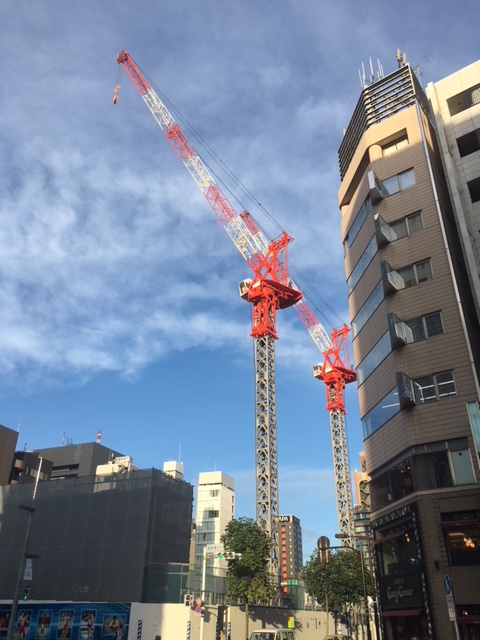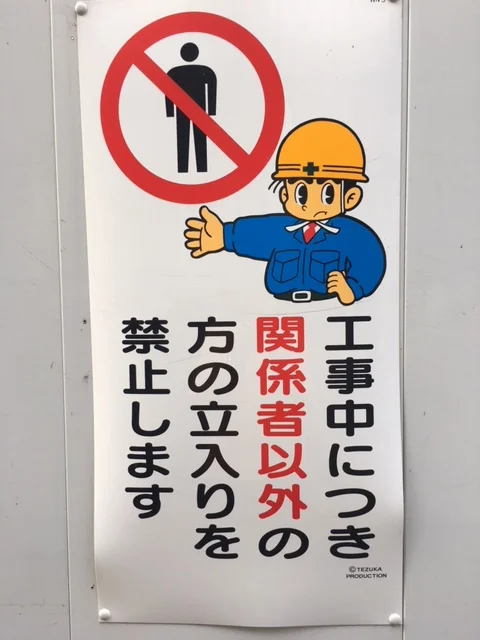By now you must have heard about the new Muji Store/Diner/Hotel in Ginza. It’s the first Muji Hotel in Japan and more. We wrote a “coming soon” story about it in this blog last July. Well, now Muji Ginza is open for business and we had a look inside.
First, we had to wait for the crowds to thin out. On opening day, April 4, there were lines down the block with rent-a-cops holding signs saying “Line Forms to the Right (now that Muji’s back in town)” or something like that. I don’t stand in line for ramen, donuts or even ATMs. I’m happy to walk farther or come back another day, so I certainly wasn’t going to stand in line for Muji. Come on, it’s Muji.
Yet, because I like all things new, I had to take a gander. Plus, I watched the construction with bated breath for months. So, I bided my time, and it didn’t take long for the crowds to dissipate. This isn’t Krispy Kreme after all, it’s Muji.
Muji croissants are selling like hot cakes
About a week after opening day, we we made it inside, and here’s what we found. First of all, the ground floor retail space is a bit cramped, including some aisles that are barely wide enough for one, and I'm skinny. After I got over a mild claustrophobic panic attack, I was able to make my way around without losing my cool.
The ground floor is mostly food, including a corner bakery, which, when we visited, sold only fresh croissants. One day, there were guide ropes, like at Disneyland, for a long queue of ladies waiting to buy croissants. Yes, waiting to buy Muji croissants. Go figure. There are also fresh vegetables and fruit, a neat selection of smartly packaged bento, all sorts of dried fruits and nuts, ready-made meals, condiments and a smoothie and soft ice cream bar. Although, the only ice cream flavors were vanilla, chocolate and vanilla-chocolate swirl. That’s Muji in a nutshell.
Would you like a cup of coffee or a coffee cup?
At the back of the space, wide stairs lead down to the Muji Diner, which is like a premium cafeteria, except, and I kid you not, there is retail space set aside along one wall to sell cutlery and kitchen utensils. You know that feeling, you’re digging into your curry rice and you start thinking, “Gee, I wish I had a spoon like this at home.” Well, at Muji you don't have to wish, you can buy it, right on the spot.
The Diner features a display of fresh fish and well-appointed salad bar, which is a nice touch considering salad bars are kind of rare in central Tokyo. The dining space offers a range of seating options, from semi-secluded lounge-like corners to standard coffee shop tables and wall-hugging counters for singles.
On the upper floors (2-5), which are a bit less cluttered, you’ll find all the Muji standards. Blue jeans, shoes, socks and underwear, racks of nondescript clothes in neutral colors, housewares, linens, furniture, kitchen goods, stationary, luggage, large appliances and more.
On the 6th floor there’s a modest library (500 titles) called Muji Books, which features, not ironically, a book about, you guessed it, Muji. The floor also features Salon, the Muji café that offers alcoholic beverages as well as standard café fare, and “Wa” an upscale-leaning Japanese restaurant. Perhaps the best feature of the entire complex, is that on every floor there are lots of nooks and crannies, corner lounges and counters for people to relax and have a coffee or a beer, or just fiddle with their electronic devices, even without making a purchase. Free indoor chill space, is not easy to find in Tokyo, especially not Ginza.
Fancy a spin around town on a Muji bike?
Another nice feature is a bike rental service. For a 3,000-yen deposit you can cycle 5 hours for 500 yen or all day for 1000 yen. In fact, there is a wide array of services spread across these floors such as product customization (embroidery). Interestingly, the bike rental and other services are not explained or even mentioned on the English-language website.
The hotel lobby looks liked any decent hotel lobby. Design-wise, it definitely does not say “business hotel” but rather upper middle range. Lots of stone and wood. We did not check the rooms, but you can be sure they are well appointed with Muji furniture, towels, linens and amenities, hopefully, without price tags. One feature we envisioned that the hotel offers is that you can buy anything you forgot (socks, underwear, tooth brush, curling iron) or get a quick meal without ever leaving the building. That’s a big plus for both busy and shy travelers.
Between the smoothie bar, the Diner, the Salon (café), the restaurant “Wa” and the hotel lounge there are plenty of places to enjoy an adult beverage, a nosh or even a full meal. Thus, it appears that Muji’s strategy, in addition to attracting tourists from China who are already Muji Hotel fans (the other locations are Shenzhen and Beijing) is to provide a space for relaxing, browsing, dining and, of course, shopping. Because whether you’re sipping coffee or browsing a periodical in the library, Muji products, all with price tags, are never out of eyesight. Well, that’s Muji, for ya.






















